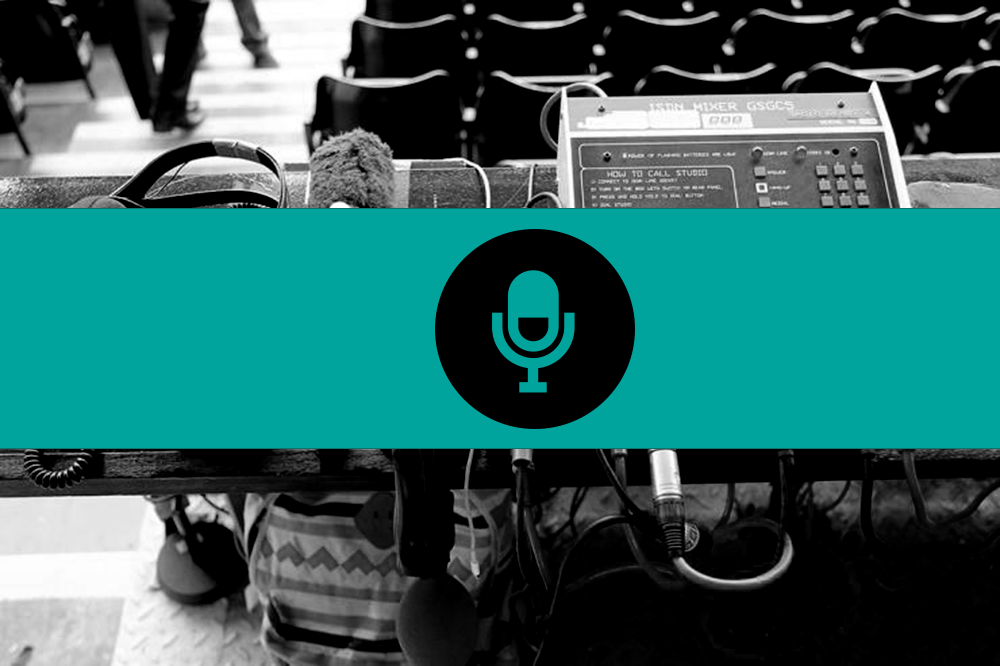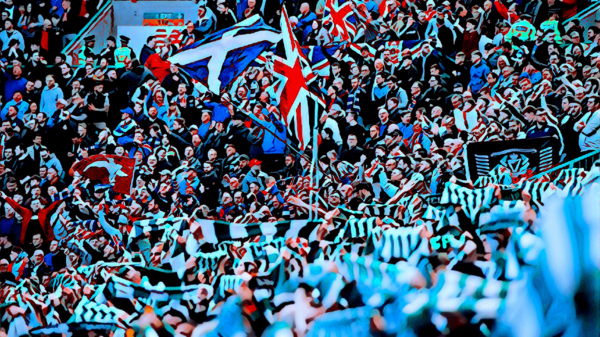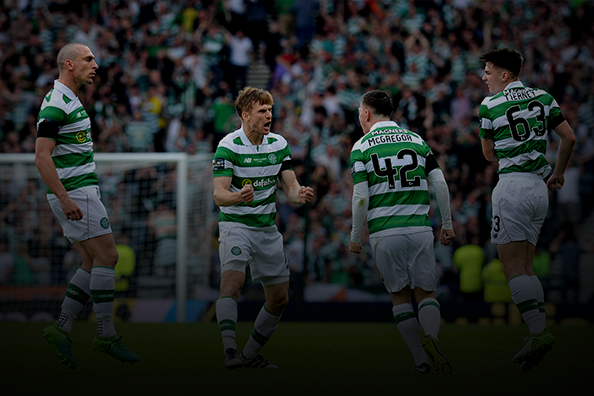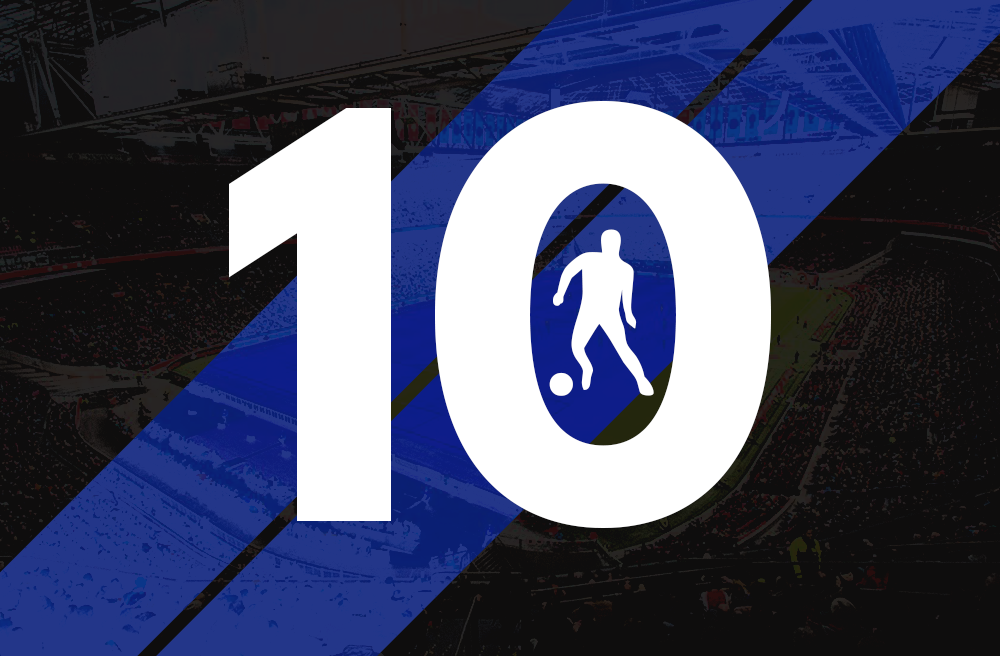Oliver McManus gets the chance to interview the voice of Scottish football, Derek Rae.
Derek Rae is a well respected commentator who has been a pro since about 1986, completing over 30 years in the business. Currently covering Scottish football for BT Sport, he also covers European football, and the Bundesliga.
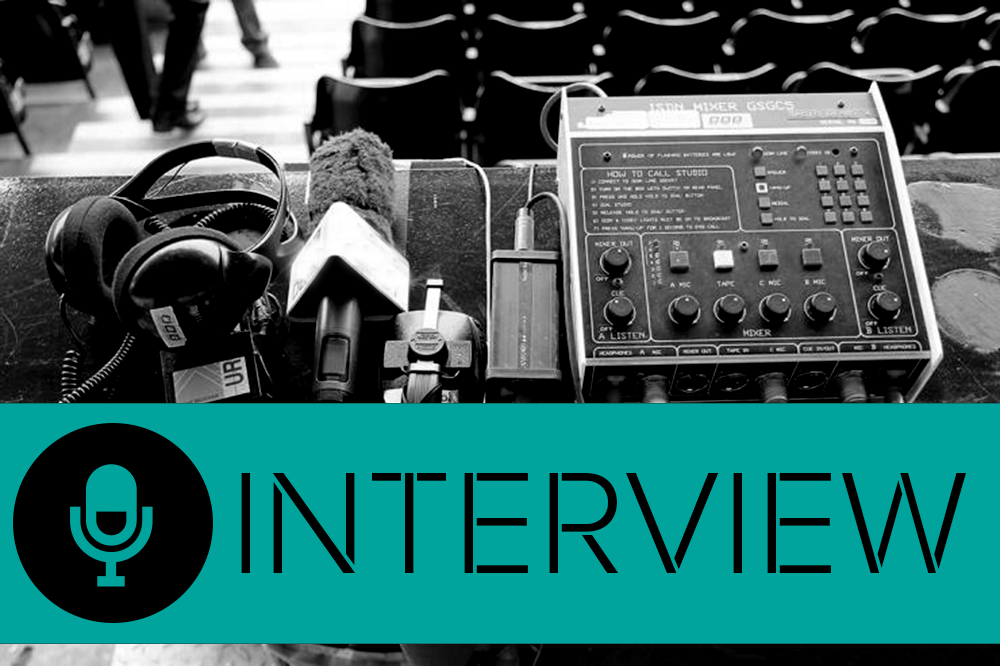
Hi Derek, thanks for agreeing to speak to me. Let’s be honest, do you have greatest job in broadcasting?
First of all, thanks for the invitation. It’s always flattering for those of us in the commentary business when someone takes an interest in what we do.
Best job in the world? Well, it was always for me the dream job as a youngster. Realistically I thought it would remain just a dream because particularly back in the 70s and 80s when I was growing up, there weren’t exactly many people around who commentated for a living.
But 30 years on from my professional debut, I’m still doing what I love so I’m very grateful.
Well, I suppose we should start at the beginning, how did your life as a commentator begin?
It really began during the 1974 World Cup when our family bought a fledgling stereo recorder. Back then, being able to record your voice on cassette tape was a novelty. I used to do my own 7 year old’s answer to the commentators I heard on television and radio during that World Cup. My father still has the tapes somewhere in an attic in Aberdeen!
A few years later I began commentating into a tape machine at Aberdeen reserve games. I got a lot of strange looks but remained a firm believer, and this applies especially to any aspiring young broadcasters, that you have to pluck up the courage to be your own person and do what other hopefuls are not doing.
A big influence was David Francey, the late great Radio Scotland commentator. He listened to my work and was very encouraging.
In time, I presented myself to hospital radio in Aberdeen and would cover a lot of the big games for them during the Alex Ferguson era, including a few European ties in 82-83 when the Dons won the Cup Winners Cup, while still at secondary school.
While in my first year studying German and International Relations at Aberdeen University, I decided the time was right to contact David Francey again. Only this time, David passed my demo tape on to Charles Runcie, the lead producer at BBC Radio Scotland.
Soon after that I was offered my first commentary for them in April 1986 between Kilmarnock and Dumbarton. Little did I know that it was an audition on a pretty grand scale. David Francey had suffered a knee injury and Radio Scotland needed a commentator to go to Wembley the following midweek to do England v Scotland, which was my second radio game!
It’s amazing looking back that they gave me that chance but strangely I recall not being nervous, just relishing the whole experience.
Oftentimes commentators can be accused of bias, when you’re at a match, does this affect how you actually commentate?
As a group, this is something that baffles commentators. The job is hard enough without that aspect. You call things as you see them and lose yourself in the game, rather than worrying about who wins.
If anything, I think commentators who grew up supporting a certain team go the other way when they cover that team, almost as an inbuilt defence mechanism.
I know I speak for all commentators when I say that it’s far more important for us that the commentary and production went well than who won or lost.
Our team is the production team we’re working with that day or night. There’s also something odd about diehard fans who are very partisan being arbiters of whether or not a commentator is impartial.
All I can say for my part is, it’s my job to call the game fairly, not be a cheerleader for any particular side. That’s true of everyone in the business. We didn’t get into it to be fans with microphones.
Now, you’ve commentated on many a game, do you have any that particularly stand out?
The one that stands out above all others is the 2005 Champions League final in Istanbul.
I was US based with ESPN at the time and had flown all the way to Turkey only to see Milan cruise to a 3-0 lead shortly before half-time. That Liverpool fought back in the manner they did to eventually prevail on penalties, well that is always going to be hard to top.
The commentary for whatever reason just seemed to flow that night and seemed to resonate with a lot of newer fans of the sport who were watching back in the USA. Some still tell me that was the game that got them hooked on football.
There is something about Turkey because their national team gave me brilliant material at Euro 2008.
I seemed to be in a lucky place with them as they performed miracle after miracle to get to the semi finals.
As commentators, we are always at the mercy of the action in front of us. Hopefully we hit the right notes when the big moments arrive.
You are, for many, the voice of Scottish football – do you see your role as being somewhat of an educator to those listening in?
Scottish football has always been and will always be dear to my heart. I’m very proud to call myself a Scot and enjoy finding side stories about teams and players that can be relayed to the viewing audience, sometimes unusual ones.
I see my role as lead Scottish commentator for BT Sport as one of hopefully providing the right words and tone, as someone who grew up going to Scottish games too, knowing that I’m talking to fans who are similarly steeped in it.
That’s what I think is often lost on people not from Scotland. The standard is of course far from what you see in the top five leagues in Europe but Scottish football is still the most important football in our nation of five million and its global diaspora. It’s our football.
I’m lucky enough to work with an award winning BT Sport/Sunset and Vine production team, wholly committed to accentuating the positive as regards football in Scotland.
You’re also a busy man for the Bundesliga World Feed, as an operation, how does this differ to your work at BT Sport?
The Bundesliga world feed commentaries from Germany give me a chance to cover my other favourite league on a regular basis while altering the angle of attack slightly.
I say that because we’re talking to fans around the world, many of whom are discovering the Bundesliga and Germany.
So a bit more explanation is required. Not everyone in the audience knows where Augsburg is, or that Mainz is known for its big Karneval celebration. It’s a league very much on the up and up and the Köln based production crew are superb people to work with.
And when was it that you first discovered your love of the Bundesliga?
I go back a long way with the Bundesliga. It went hand in hand with my interest in German language and culture as a school student in the 80s.
In Aberdeen we used to get the signal from NDR in Hamburg directly across the North Sea, so I listened to a lot of ‘Konferenzschaltungen’ (an open mic type format.)
Later I spent a bit of time helping out in a school right on the border of West and East Germany before starting university.
I went to as many Bundesliga and 2. Bundesliga games as possible and really couldn’t get enough of it. There is a German part of me, I think, and for years I have subscribed to Kicker magazine my twice weekly football bible.
I still get a buzz when entering a stadium in Germany before a game.
Funnily enough though, it’s only in recent years I have been able to commentate on the Bundesliga regularly with ESPN, BT Sport and now the Bundesliga world feed, too. A true labour of love.
Now, on the BT note, you were one of the first to join the fledgling channel – were you confident that it would be a success or, maybe, a tad trepidatious?
When ESPN decided to downscale its UK operation in 2013, I was at a professional crossroads.
I had come back to the UK with ESPN a few years earlier as they had lost rights to the Champions League in the US, while suddenly picking up significant rights in the U.K.
I will admit I was very close to returning to the USA in 2013 but BT Sport approached me and I found the whole project intriguing.
I don’t think you can worry too much about the future when you work in the commentary world, so I didn’t! The fact is rights to properties come and go. It’s a fact of life and you have to roll with the punches.
Thankfully Scottish football remains a big part of it all at BT Sport and it has been great fun to be reunited with the Champions League, which was my bread and butter as a commentator for a decade or so in the US.
Scottish/Champions League/Bundesliga is the perfect combination for me and I’m very fortunate to be able to work across those competitions.
Obviously, a lot of preparation goes into each match, talk us through the average week in the life of Derek Rae, what does it entail?
The preparation aspect often surprises people who don’t work in the field. They assume we just turn up and talk.
But there is a lot more to it than that and we spend a lot of our days away from the microphone shovelling for information.
A lot of that work is solitary and so it’s the lonely side of the job that no one ever sees, researching, watching games, committing information to memory and digging for that line that can often take hours to find.
The make up of my week depends upon when the games are scheduled. If there’s no midweek game, I have the luxury of spending Monday and Tuesday going into detail on my upcoming weekend assignments.
If there’s a Tuesday or Wednesday match, then there’s a need to work more quickly.
I use the same system for every game, handwriting everything in tiny script on a single sheet of paper and using colour codes for each team. This ties in with my languages background, knowing that writing things down helps you memorise.
I try to start the preparation for each game as far ahead as possible, sometimes several weeks ahead, and write as I go. It often feels like juggling.
Your co-commentator also has a key role. What, for you, makes a good co-comm and who do you enjoy working with most?
This is the big change in commentary set ups since I started in the 80s. Back then, the co-commentator would really only talk once every few minutes and often only when invited in by the commentator.
I still think that brevity is best and quality over quantity should be the general rule on television for commentator and co-comm.
The viewer can see for him or herself what’s happening so a good co-commentator will always explain why something has happened rather than just rehashing it.
I’ve been very lucky to work with a number of excellent co-commentators over the years all with different styles and approaches to the job.
The main thing is to develop a rapport with your co-commentator, but still making sure that the game is the most important thing. We aren’t comedians after all!
I’ve enjoyed working with them all so it would be wrong to single one of them out. They have all brought something very much their own to the table.
What are you looking forward to in football this year, Derek?
I’m greatly looking forward to the introduction of video assistant referees in Germany in August. I have felt for a while that this is a key step in helping referees get the big decisions right.
The playoffs in Scotland have become a huge part of the end phase of the season for the BT Sport team since we have exclusive coverage, so that is always something I get excited about.
Perhaps the most enjoyable games for me have come in the Premiership playoffs with so much on the line. There’s nothing quite like it.
And finally, just for fun, give us three things we don’t know about you
Three things? OK, I’ve been happily married to Beth, an American, for nearly 20 years. She thankfully keeps me from spending too much time thinking about football. There are other things in life, too.
I’m a devotee of ‘Game of Thrones’ but some might already know that from my occasional references to it!
Number 3? Golf is my favourite sport to play, although enthusiastic rather than talented. I like nothing better than spending a June night teeing off at a Scottish links course around 8pm and coming in just as it’s getting dark. It’s a magical feeling.
Cheers for speaking to me Derek.
Thanks very much for the questions.
Read all our interviews here
- Syria: The path to World Cup qualification - July 8, 2020
- The story of South Africa’s topsy-turvy footballing journey - November 8, 2017
- Interview: Sunil Chhetri on his foreign stints, Bengaluru FC, and the rise of Indian football - October 24, 2017




















































